Integrate your Skills Management Software
“Unlock your team’s potential with PeopleSpheres and develop their skills for sustainable success.
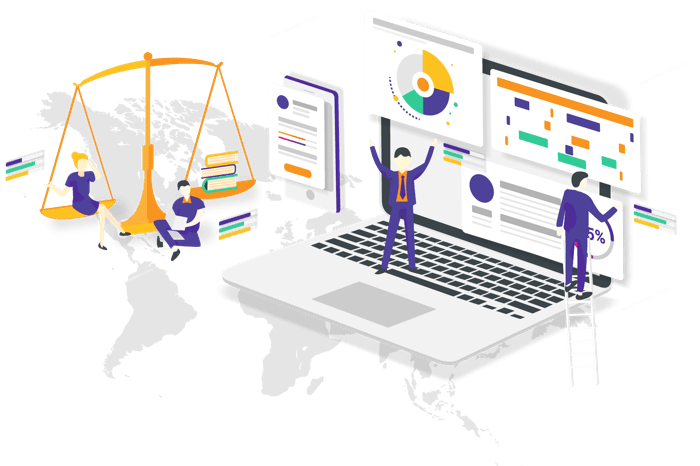
Your connected tools
The best competency management tools are connected to PeopleSpheres

Cornerstone (Skills)
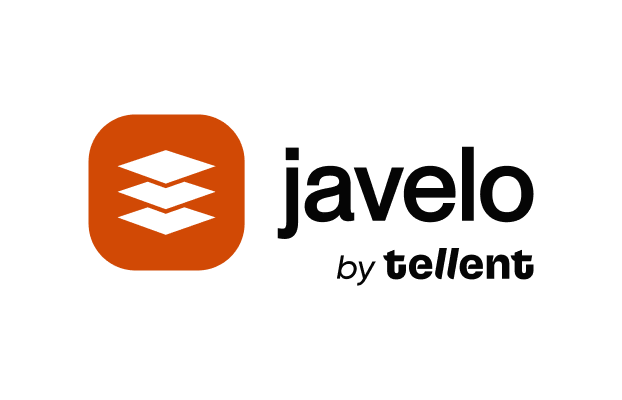
Javelo (Skills)
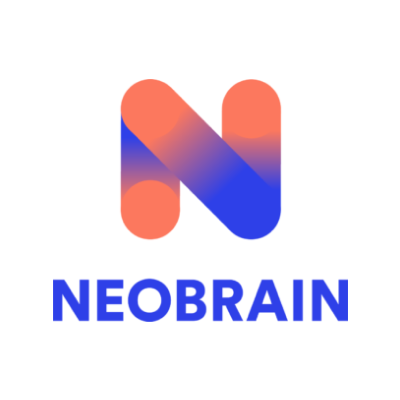
Neobrain (Skills)
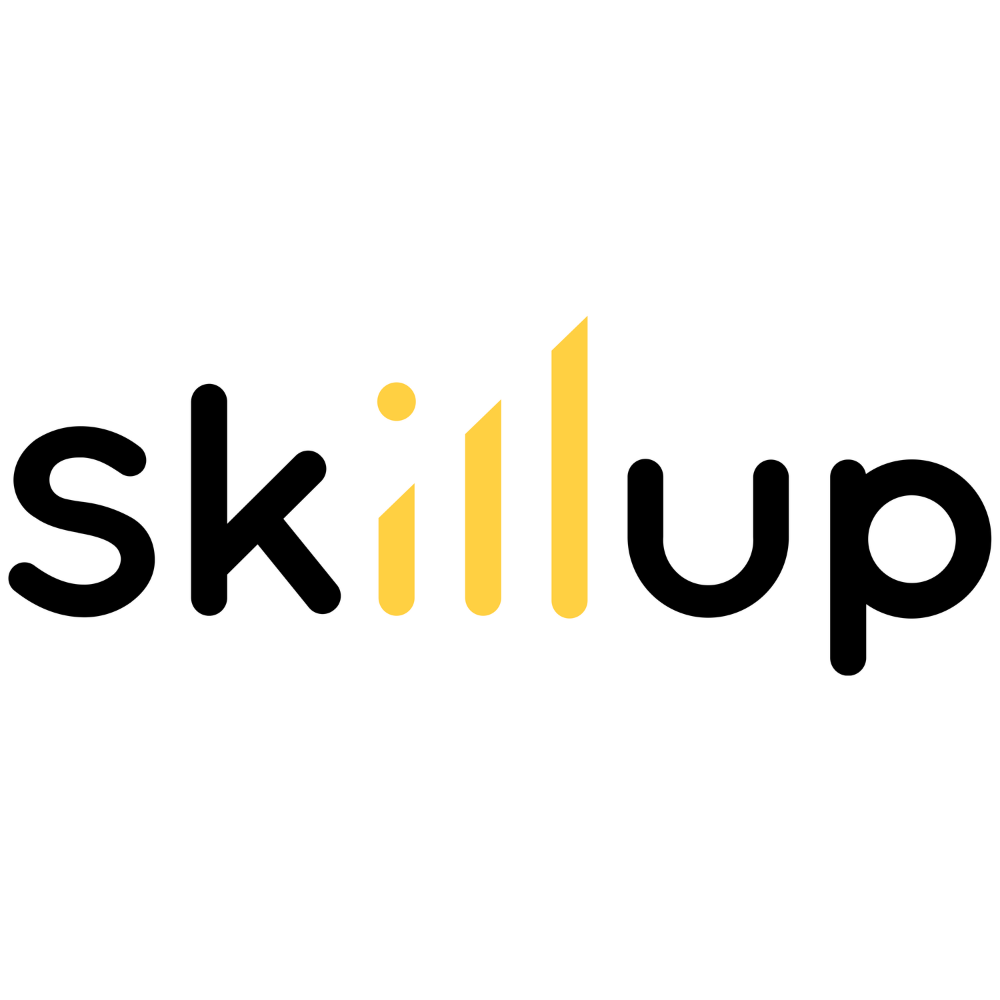
Skillup (Skills)

Empowill (Skills)

Palm

Zola (Skills)
Discover all the tools connected to PeopleSpheres
See all the toolsComprehensive and intuitive skills management.
Internal Skills Analysis
Identify the skills required for each project/mission and match profiles with the necessary competencies.
Employee Involvement
Tests are available for development plans. Consult your employees and consider their feedback for their development.
Skill Development
Conduct assessments and tests during recruitment to anticipate necessary training and development paths.
Skills Plan Monitoring
Customize your skills plans based on internal objectives and needs while aligning with your employees’ expectations.
Tailored Skills Tracking
Integration of skills repository
Enhance visibility on your internal needs with your data and develop development plans via our software
Access to campaigns via notification
Simplify access for employees by allowing them to access their development plans with just one click.
Creation of personalized reports
Review your data based on each employee or in a comprehensive manner, gaining better visibility to analyze your data.
Evaluation of employees
Utilize the integrated tests in the software to analyze your teams’ skills and verify their suitability for planned tasks.
Develop employee skills and competency
Reduce mistakes, avoid money loss, and seamlessly align employee activities with the company strategy by integrating skill assessments directly into your recruiting process. With the skills management system, you can easily set up customizable and efficient skill development programs, find employees by skills needed for your project team, and run a skills and training matrix by profile.
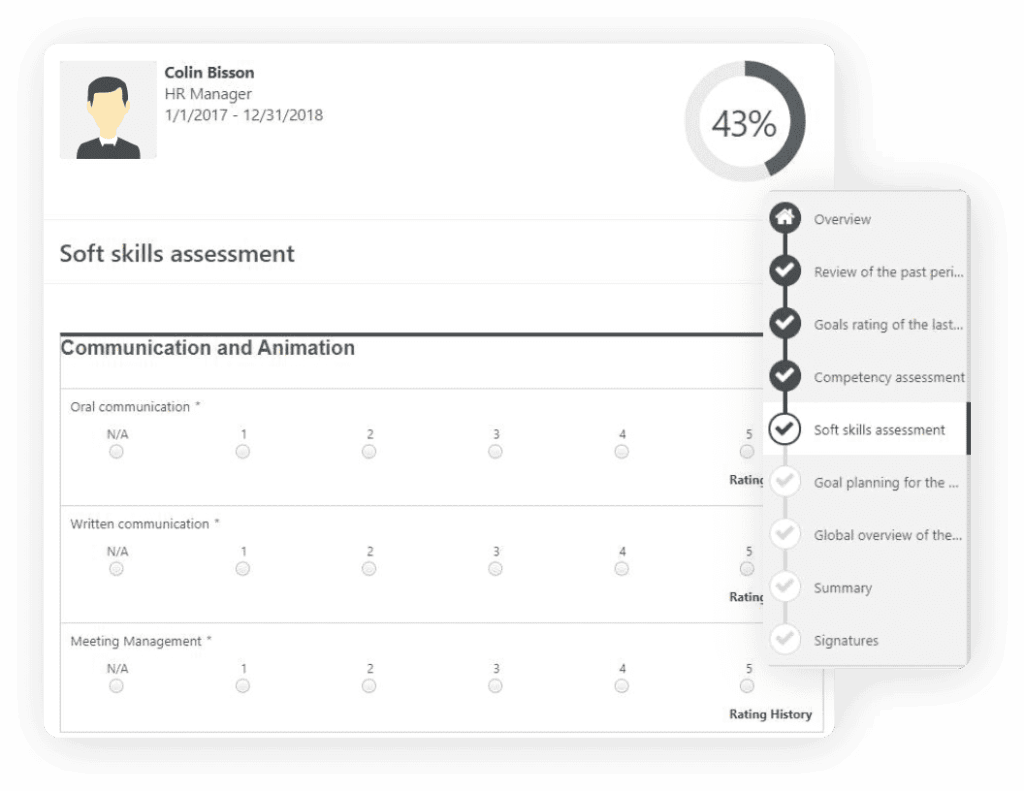
Gain knowledge about your employees skills
Improve your skills management by bringing visibility to existing and developing skills in your company. Maximize your company’s potential by getting the necessary management tools to identify and bridge gaps between skills, employee performance, and your business needs.
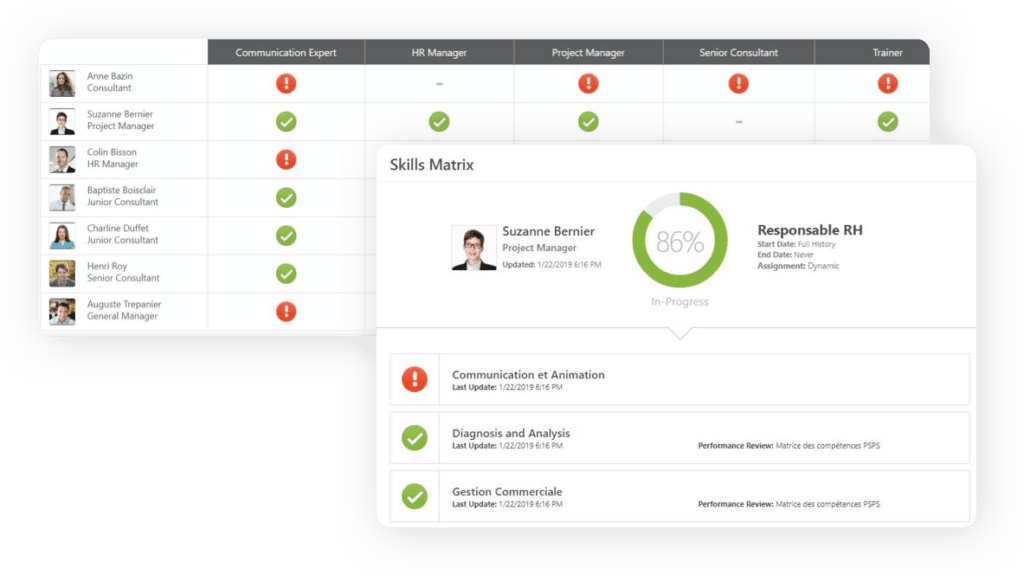
Test your employee skills
Assess skills in specific job positions and observe employees in real-time to determine skill and expectation matching. Use assessment tools that are integrated into the cloud-based HR software to measure employee skills development. Follow up on skills, qualifications, and competencies precisely. Easily identify your employees’ skills and gaps thanks to an intuitive app and determine areas that are in need of learning and development. Combined with recruiting software and succession management software on our centralized management platform, you can easily search for employees by skills both internally and externally.
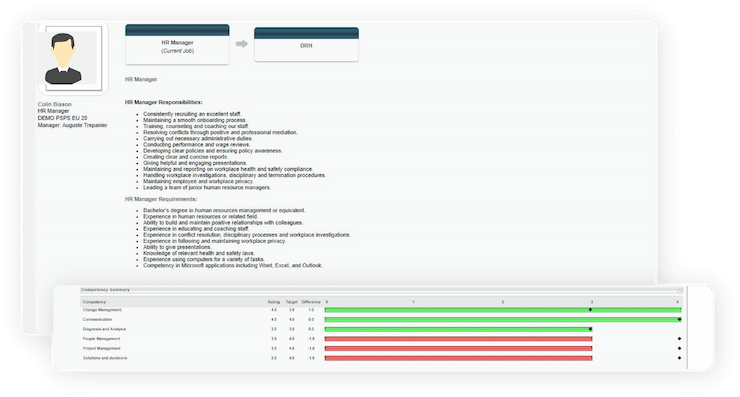
Involve your employees in their skills management
Gain access to an easy-to-use dashboard with a standardized and reusable skill library in our HR system. Generate development plans automatically according to skill assessment results. Make your employees aware of their role in their team’s skills management and help anticipate and prioritize skill needs according to company strategy and evolution.

Upgrade your HR management
Get a global overview and make it easier to visualize the skills available in your company thanks to organizational and individual skill maps offered on the PeopleSpheres platform. Create individual training plans and assignments according to skill test results. The skills management module enables you to save time using skill management software and improve company productivity. Enhance employee development by providing them with high-level employee training.
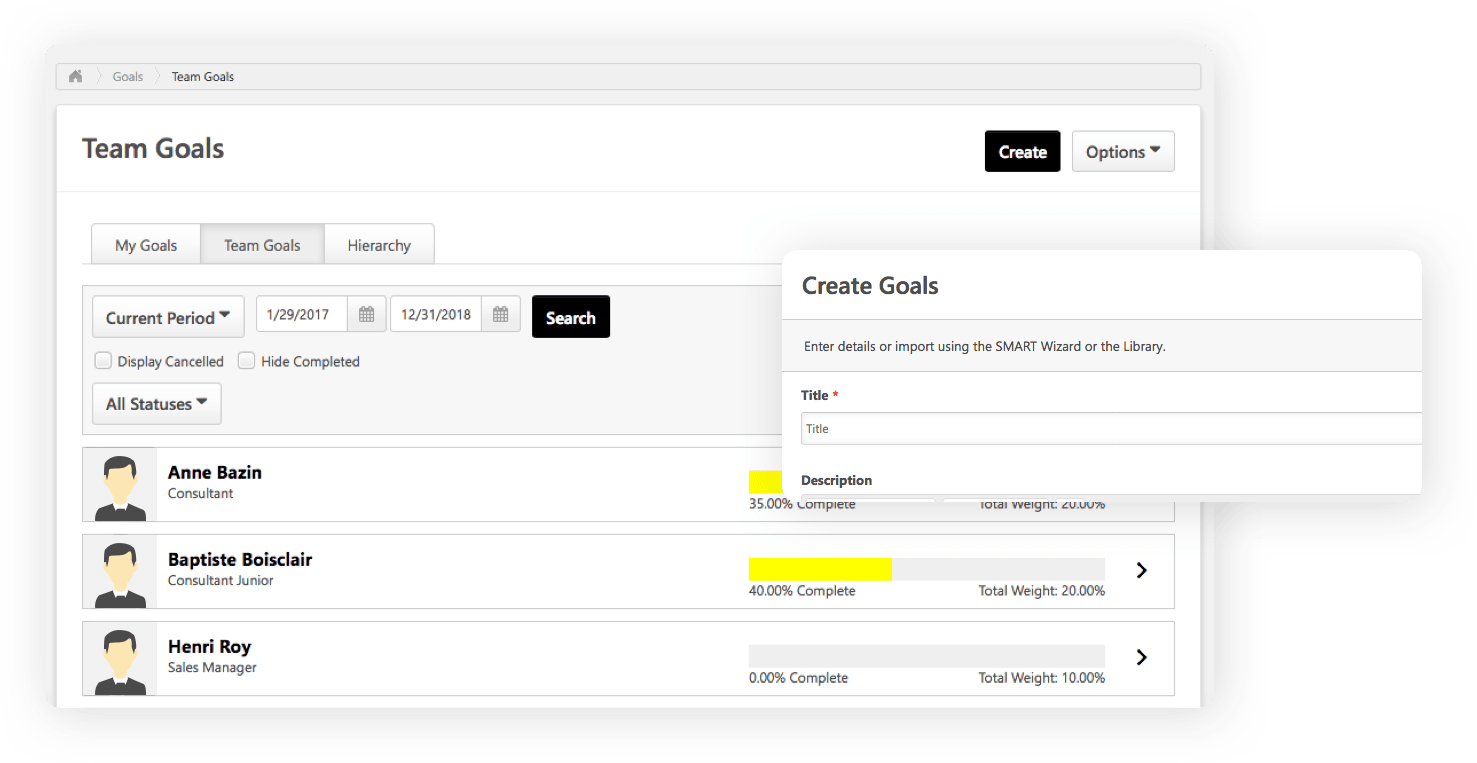
Intrasipa Group creates a common space for more than 350 brands and 6 legal entities
After accumulating multiple HR tools throughout the years, things got so complicated that employees often bypassed the system altogether, going straight to HR staff with their questions. At the same time, there was a strong desire among employees to feel connected to each other and to the company as a whole.
Discover how Intrasipa found a flexible and personalized solution with PeopleSpheres.
Skills Management Software Buyer’s Guide
What is skills management software?
Skills management software is a digital tool that aids businesses in identifying, organizing, and leveraging the skills within their workforce. It allows for a systematic approach to understanding the capabilities of employees, linking them with job roles and identifying any skill gaps that may exist.
The benefits of skills management software
Investing in a skills management software can bring various advantages to your organization.
Enhanced Workplace Planning
Having a comprehensive understanding of the skills available within your organization allows you to strategically allocate work assignments, create effective project teams, and streamline recruitment efforts.
By gaining a clear overview of the diverse skill set present, you can ensure that the right people are assigned to the right tasks, fostering productivity and success across the board. This knowledge enables you to make informed decisions and optimize resource utilization, ultimately driving organizational growth and achieving desired outcomes.
Improved Employee Development
By utilizing advanced algorithms and machine learning capabilities, the software has the ability to meticulously analyze and identify the unique skill strengths and weaknesses of each individual employee.
Armed with this valuable insight, it can then tailor personalized learning and development plans that are specifically designed to foster growth and engagement to improve management solutions. This proactive approach not only empowers employees to enhance their skills but also ensures that their professional development aligns seamlessly with organizational goals.
Through this fine-tuned guidance with workflows, employees are equipped with the tools they need to thrive and excel in their roles, ultimately contributing to the overall success of the company.
Data-Driven Decision Making
Skills management software provides organizations with powerful data analytics capabilities, enabling informed decision-making regarding promotions, succession planning, and strategic workforce restructuring.
By leveraging comprehensive insights into employees’ skills and competencies, this software empowers businesses to optimize talent utilization, identify skill gaps, and drive targeted workforce development initiatives. With its robust features and advanced analytics, skills management software is a valuable tool for enhancing organizational performance and driving sustainable growth.
Key components of a skills management software
Skills Inventory and Assessment
This feature helps catalog the skills within your organization and assesses employees’ proficiency levels. By establishing a comprehensive skills inventory, the software enables businesses to gain an in-depth understanding of their workforce’s capabilities and identify any skill gaps that need to be addressed.
Skill Tracking and Profiling
This component allows for real-time tracking of skill development, enabling quick updates to employee profiles. It also provides valuable insights into the growth and progress of individual employees, allowing businesses to gauge the effectiveness of their development programs.
Learning and Development Integration
The software should integrate with learning platforms to streamline the process of filling skill gaps identified. By linking employee profiles with suitable courses and learning opportunities, employees can easily access development resources tailored to their specific needs.
Analytics and Reporting
Effective skills management software should provide robust analytics and reporting capabilities. These features allow businesses to track progress, measure ROI, and make data-driven decisions regarding workforce planning and development initiatives.
How much does a skills management system cost?
Pricing Models and Cost Factors
The cost of a skills management system can vary greatly based on the size of your organization, the features you require, and the provider you choose.Common pricing models include per user/per month, flat rate, or custom pricing based on your unique requirements.
Consider factors such as implementation costs, training expenses, and any additional charges for premium features or support.
How to choose the best skills management software
Assessing Your Organization’s Needs
When assessing your organization’s requirements, it’s crucial to identify both current and future business needs. For example, you may require a software that allows for seamless integration with your existing HR systems, or one that can scale as your business grows. You may also need a software that offers customizable skill categories to fit your unique industry or organization, or one that provides robust data privacy and security features.
Additionally, consider practical factors such as the software’s ease of use, the quality of customer support provided, and whether it offers mobile compatibility for remote work situations.
Integration with Other HR Tools
Your chosen software should seamlessly integrate with existing HR tools for a smooth workflow. This can include talent management, performance management, and learning and development systems.
This provides a holistic approach to manage employee lifecycle, right from hiring, skill development, performance evaluation, to succession planning. It also allows organizations to truly leverage their human capital by identifying high-potential individuals and nurturing their growth through personalized learning programs.
Such an integrated approach thus enables organizations to maximize workforce productivity, engagement, and retention, thereby driving overall business success.
User-Friendly Interface
The software should have an intuitive interface that is easy to navigate for both managers and employees. A user-friendly design will ensure adoption and effective use of the software throughout the organization.
Ease of Implementation and Scalability
Consider the implementation process of the software, including any potential downtime or disruptions to your business operations. Also, ensure that the software can scale with your organization’s growth and changing needs.
Implementing a skills management software like PeopleSpheres is designed to be a straightforward and hassle-free process. The cloud-based platform allows for quick setup, ensuring minimal disruption to your business operations. PeopleSpheres also provides comprehensive support during the implementation phase, guiding you through each step of the process. Its scalability feature makes it an excellent choice for businesses of all sizes, as it can easily adapt and grow with your organization.
Emerging trends in skills management software
AI-Powered Skills Assessment
Artificial Intelligence is becoming increasingly prevalent in various industries, as it offers the potential for more precise and impartial skills assessments. By leveraging advanced algorithms and machine learning techniques, AI can analyze vast amounts of data and provide valuable insights into an individual’s abilities and potential.
This not only enhances the accuracy of assessments but also helps to mitigate human bias, leading to fairer and more objective evaluations. With its ability to continuously learn and adapt, AI is poised to revolutionize the field of skills assessment, paving the way for a more efficient and equitable future.
Skills Mapping for Remote Work
As remote work becomes increasingly prevalent, the need for software that can effectively map skills across dispersed teams becomes even more crucial.
With team members working from different locations and time zones, it is vital to have a tool that enables seamless collaboration and identification of individual strengths. By leveraging such software, organizations can ensure that the right skills are matched to the right tasks, leading to enhanced productivity and successful team outcomes.
Continuous Skill Feedback
Continuous feedback mechanisms are rapidly gaining popularity in various industries. These mechanisms have revolutionized the way skill development is tracked by providing real-time insights and analytics.
By leveraging these feedback systems, individuals and organizations can identify areas of improvement and make timely adjustments to enhance their performance. This trend not only promotes continuous learning but also fosters a culture of growth and development.
Why choose a skills management tool through PeopleSpheres?
We understand that each organization is unique and offer a variety of skills tools to fit your requirements. You have the power of choice so you can address your organization’s need for personalized features, meet all the buying criteria mentioned above, and future-proof your HR processes.
Plus, our commitment to staying ahead of HR trends ensures that you’ll always have a cutting-edge solution at your fingertips.
Ready to integrate skills management software?
Get the best HR solution to manage your resources. We help you develop a solid human resource policy through our HR systems that will sustain your business.

 Learn how to swiftly tackle HRIS selection challenges
Learn how to swiftly tackle HRIS selection challenges![Speed Up your HRIS Search - And Check Every Item off your List [Checklist Included]](https://peoplespheres.com/wp-content/uploads/2023/11/Speed_Up_your_HRIS_Search_And_Check_Every_Item_off_your_List_Checklist_Included_white_paper_visual.png)